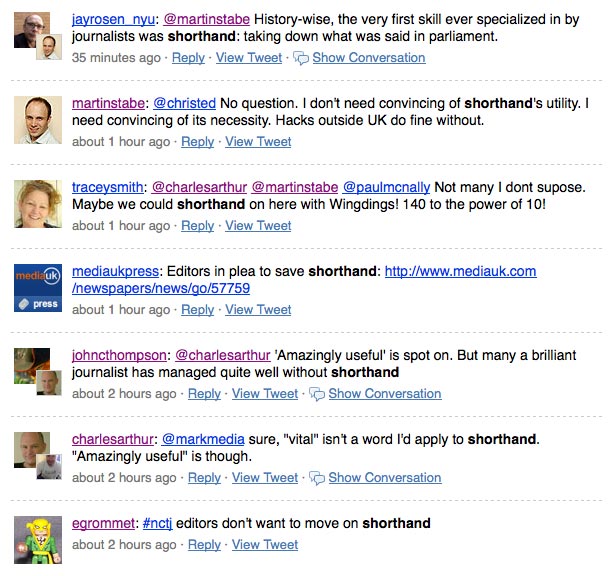The value of industry body accreditation in journalism has been at the centre of debate this week, following a meeting of the NCTJ’s cross-media accreditation board last week, where members raised concerns about the impact of potential education funding cuts on the journalism industry.
Quoted in a report from the NCTJ Professor Richard Tait, director of the Centre of Journalism Studies at Cardiff University, argued that accredited courses must be protected in the face of cuts.
While the NCTJ is quite right to insist on sufficient resources and expertise so that skills are properly taught and honed, education is a competitive market, and NCTJ courses are expensive to run. In the likely cuts ahead, it is vital for accredited courses to retain their funding so that they are not forced to charge students exorbitant fees; otherwise, diversity will be further compromised.
Speaking to Journalism.co.uk about his comments further this week, Tait said he was voicing real concerns that courses which meet industry standards may be more at risk because of their expense:
There has been a huge expansion of courses about journalism and about the media, but not all of them are accredited. These are not real journalism courses, they are journalism studies courses. There’s nothing wrong with them at all, some of them are very good courses, but they are not a professional training of journalists.
It’s really important that whatever happens to journalism education we protect those courses that provide this professional training of the journalists of the future.
If you’re running a journalism course that does not have a digital newsroom, does not teach videojournalism or students how to report online or what podcasts are, what’s the use of that? Some universities have invested heavily in these areas. But when money gets short people will say “do we really need this digital newsroom, do we need to teach shorthand etc”. There is a danger of people saying “frankly bad courses might be cheaper”.
Just days after the meeting, Brian McNair, former professor of journalism at Strathclyde University and now working at Queensland University of Technology in Australia, happened to discuss his decision to pull Strathclyde’s journalism course out of NCTJ accreditation in 2008 in a post on allmediascotland. His comments, which were picked up by media commentator Roy Greenslade, have since prompted huge debate about the value of the body. In his post McNair said accreditation is not enough:
In a world where (…) the supply of traditional journalism jobs has fallen by as much as 30 per cent (and those that remain are scandalously low-paid), the high flying journalist of the future needs more than NCTJ certificates in Public Affairs and Media Law to get on. He, or she, needs talent, imagination, a spirit of independence, an understanding of IT and social networking and their impact on media, culture and society in general; everything in short, that the NCTJ curriculum squeezed out with its relentless stress on externally-decreed learning by rote.
Many, maybe most, successful journalists never passed an NCTJ exam. NCTJ-certified journalists are being sacked, perhaps as I write, sometimes by editors who sit on NCTJ boards and declare their allegiance to the “gold standard” of training. The old world of print journalism in which the NCTJ was formed is passing into history, replaced by content-generating users, citizen journalists and all those journalistic wannabees who make up the globalised, digitised public sphere in the 21st century.
But while Tait reiterated McNair’s call for talent to be the measure of a journalist, he insisted that accreditation is a vital tool for students:
The problem is that there are a huge number of courses which have got the magic word journalism in them. If you’re a student and you’re looking at this multiplicity of courses and trying to work out what one is up to a certain standard, that’s absolutely essential.
What you’re already seeing in journalism is that it is becoming a profession where who you know is becoming more important than what you know. It should be about talent. I think that if you don’t have the accreditation process, the rigorous approval of courses by accreditation bodies, how can the students work out what to do?
What do you think? Let us know in the comments or by voting in the poll below:
